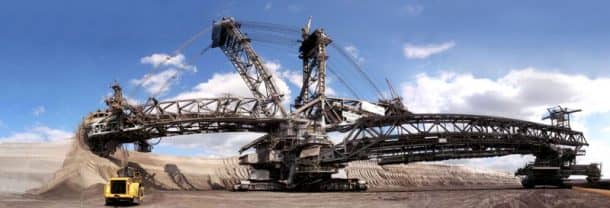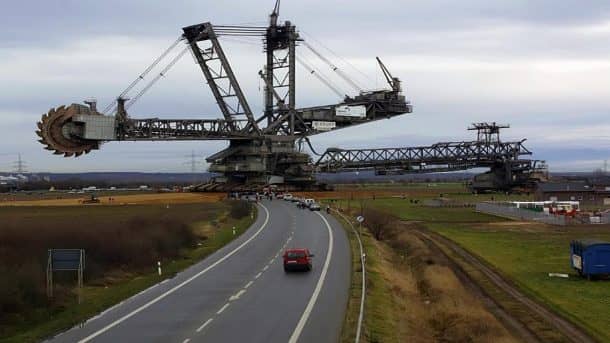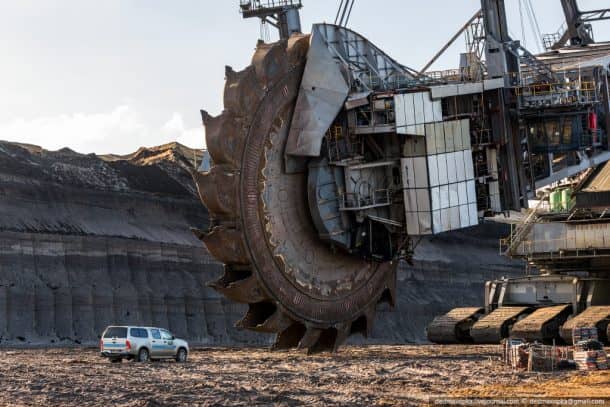The German mining machine, Bagger 288 is a bucket-wheel excavator built by the Krupp company for the energy and mining firm Rheinbraun. The Bagger stands higher than the Statue of Liberty and even heavier than the Eiffel Tower, with a weight of 13,500 tons.

The mobile strip mining machine was completed in 1978 superseding the Big Muskie as the heaviest machine in the world. The design and manufacturing of the machine took five years, with an additional five years for the assembly. The total cost of the machine neared $100 million. The bagger uses a revolving wheel of buckets to shovel out the dirt in open-pit mines. It can dig out 8.5 million cubic feet of land per day, and when it reaches the depth, it can extract 265,000 tons of fuel every day. The monster only requires three to four people for its operation.
The mining monster Bagger 288 was only surpassed by its next sibling Bagger 293 weighing 14,200 tons, in 1995 which stands to be the heaviest land vehicle to date.

The buckets on the revolving wheel deliver the soil or fuel to 4 conveyor belts, each having a width of 10.5 feet. The belts carry the material at a speed of over 11 mph. The 13,000 tons of Bagger’s weight is carried by 8,600 square feet of tread moving it with a steady speed of 0.4 miles an hour. Electric cables as thick as a man’s arm, spanning over 5,600 feet deliver electric power to the excavator. The power this behemoth uses can power a city of 20,000 people. 88,000 pounds of paint cover the entire structure. The two pylons of the structure stand at the height of 148 feet held by 7,218 feet of steel suspension cables.
The bucket wheel alone stands as high as a seven-story building at 71 feet. Each of the 18 buckets around the wheel weighs 7,700 pounds when empty. One bucket can dig out 230 cubic feet of soil alone which can easily fill a cargo van.

Source: Popular Science



Love